There are three activities that we focus on here at YOHO…
- We research.
- We listen.
- We advise.
In addition to our own primary research, we look for patterns that occur in the myriad of commentary on, opinion of and others’ primary research into the continually evolving state of UK Businesses’ new ways of working.
We listen to the workplace concerns of UK companies combining what we hear with our own experience in business with the results of our continuing research programme.
We then advise UK businesses on their strategic and tactical approach to their workplace challenges.
One of the patterns we see emerging strongly at the moment both in our research and in conversation with business managers is the concept of company culture in today’s working world.
We are all concerned that our culture doesn’t suffer because of changes in our established ways of working that largely include flexible and hybrid working protocols which we accept as part of the way we now work, but how do they affect our company culture? How do we reimagine a culture for our companies that embraces our employees now that a large proportion of them work in more than one work space. At more than one desk? We face a challenging task in making sure that our employees are in step with each other and with the vision of the company while remaining motivated and with their wellbeing intact.
In this blog we look at some of the things we should all be considering in order to foster a vibrant workplace culture, an engaged community, and a shared purpose.
How do we define Company Culture?
We asked a range of employees in various business sectors to name things that define a company and we had responses like..
- Do you mean ‘water cooler’ moments in the old days?
- Beer at your desk at 4.30pm on a Friday?
- The works ‘do’ at Christmas?
- Comparing notes on the management?
All valid parts of the employee experience but rather than a culture per se perhaps these are all just elements of the result of human beings being in the same place as each other for a significant part of the working day, every working day. Culture by accident rather than design if you will.
Is there something more fundamental, more meaningful that makes up a strong and rewarding company culture? Do we as employers have the opportunity to create a considered culture, designed to benefit everyone in the business in this New Work Order?
Our research here at YOHO points to there being a clear definition of what makes up Company Culture – how that is interpreted is up to each company, its management, and its employees… Company culture is about identifying and to various extents sharing values, attitudes, and standards in all aspects of the workplace. It is about how people interact with each other and the atmosphere they create in the workplace. Company culture is determined by the organisation’s mission, vision, values, goals, and practices. It can be seen in how employees communicate with each other and how they handle their tasks. A positive company culture encourages collaboration and innovation while creating an enjoyable working environment for everyone involved.
Only 1 in 4 employees strongly agree they feel connected to their culture and only 1 in 3 strongly agree that they belong at their organization. (Source Gallup 2022)
What are some of the initiatives that will help employees Connect with your companies’ mission, vision values and goals?
- Open channels of communication so all expectations and goals can be clearly communicated.
- Provide opportunities for collaboration between colleagues, allowing them to build relationships with their peers as well as foster mutual support.
- Reward contributions from employees ensuring that initiatives don’t just stay as words on paper but are actively embraced and acted upon in the day-to-day operation of the business.
How do you foster an engaged employee Community in a Hybrid working environment?
Some of the areas that could be worth considering include…
Ensuring that people feel connected and part of a larger team i.e., interact through virtual meetings group activities and social events…
Fostering a culture of collaboration and open communication encouraging the sharing of ideas providing regular feedback…
Instigating a rewards and recognition scheme for taking part in company community led activities.
Case Study – Building Community with more than technology
Tech Mahindra, an IT company with over 140,000 employees around the World, strengthens its workplace community through integrated recognition and by including housekeeping staff, customers and families in company celebrations. The company communicates to all employees with a daily email newsletter and checks in often on the well-being of associates. Additionally it drives positive change by rallying employees to improve their neighbourhoods and cities. All these efforts connect to Tech Mahindra’s purpose and culture and then strengthen belonging and community for employees. (SOURCE:OCTANNER GLOBAL CULTURE REPORT 2023)
How does this shared purpose and engaged community influence Workplace Culture?
Workplace culture is heavily influenced by the shared purpose and engaged community within an organisation. When employees are united by a common goal, they are more likely to collaborate and work together to achieve that goal. This creates a sense of belonging and connection among employees, which in turn leads to increased motivation, productivity, and job satisfaction. Furthermore, when employees feel connected to their colleagues and the organisation, they are more likely to be engaged in their work and take ownership of their tasks. This engagement can lead to higher levels of creativity and innovation within the workplace, resulting in improved performance overall.
Can YOHO help me?
If you are experiencing any of the workplace culture challenges mentioned above, we certainly can! If you’d like to discuss any of the issues raised in this blog or indeed any other workplace issues relating to the well-being of your staff, their productivity and your company performance why not take advantage of our extensive research and knowledge of the workplace issues facing UK business by requesting a free 30 -minute consultancy call

